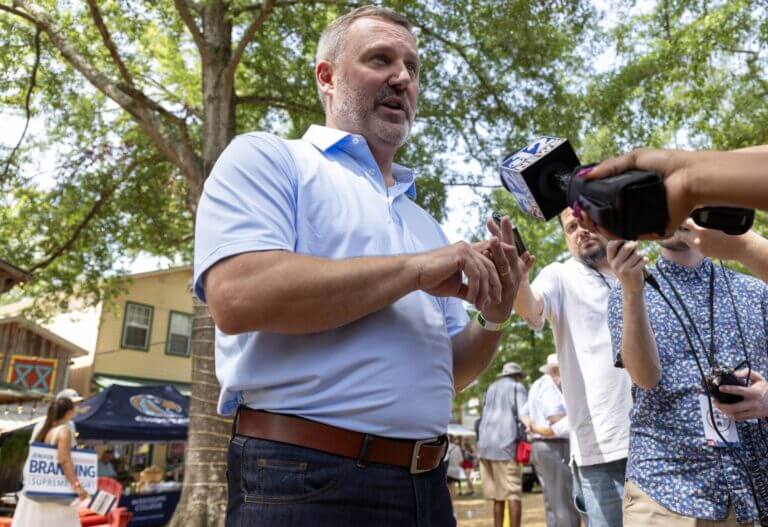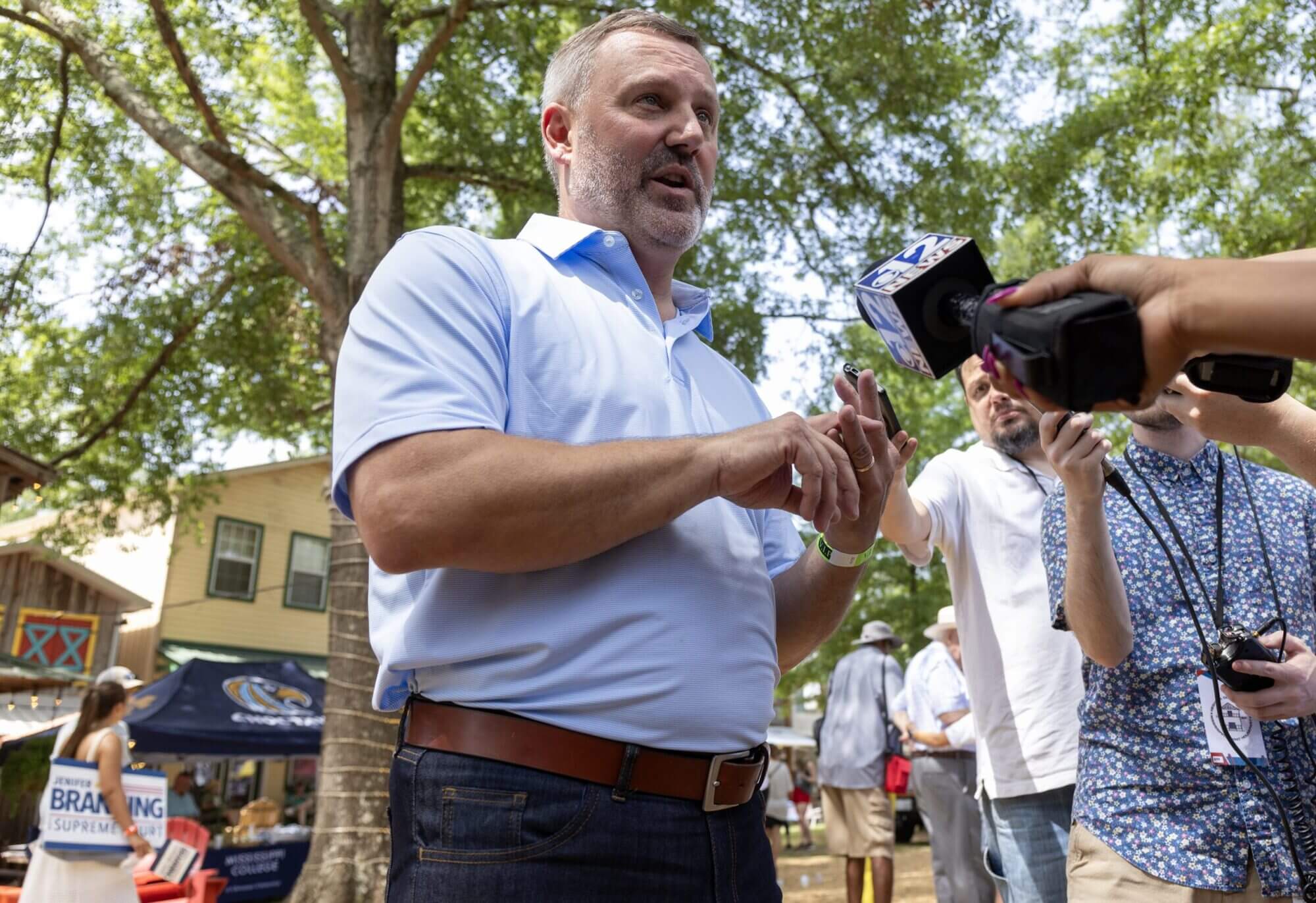

The dichotomy that is Jason White was on full display during a speech he delivered during a recent lunch meeting of the Mississippi State University Stennis Institute of Government.
Some at the meeting most likely cursed House Speaker Jason White because of his work to eliminate the Mississippi income tax and because of his unapologetic support of sending public funds to private schools.
Darn that Jason White.
But many of the same people would praise the first-term Republican speaker for his past support of expanding Medicaid to provide health insurance for primarily the working poor and for his support of restoring voting rights for people convicted of felonies.
Thanks, Jason White, some might say, perhaps begrudgingly.
But those people should give White some credit. It was no small feat for White to publicly voice support for Medicaid expansion as he campaigned in 2023 to gather the votes to win the speakership. Before then it was rare for a Republican politician in Mississippi to even utter the words “Medicaid expansion.” Theoretically, White could have been putting his political future on the line.
But in 2024 after being elected speaker by his Republican caucus, White made a good faith but ultimately unsuccessful effort to pass an expansion bill. The proposal was defeated for multiple reasons.
But White has not ruled out the possibility of Medicaid expansion being revisited.
He said the state still needs to help struggling rural hospitals and to work to increase the number of Mississippians who have health coverage. And to achieve those goals, Medicaid expansion, despite changes made to the program in the so-called federal “Big Beautiful Bill,” appears to still be the best mechanism to help struggling hospitals and to ensure health care coverage for poor, working Mississippians.
Another proposal that many Republican leaders, including Gov. Tate Reeves, have opposed that White has embraced is restoring voting rights for people who have been convicted of felonies. In Mississippi people convicted of some crimes, even some relatively minor ones, lose their voting rights for life.
White recently said that he supports “addressing barriers to suffrage for those … who have served their time … paid their debt to society, paid all fines and fees. We are looking for a way to remove barriers for those folks to reengage with the community and be able to vote.”
But many of the same people who would support White’s efforts in health care and in expanding voting rights would curse the considerable political capital he spent to pass a bill that is intended to phase out Mississippi’s income tax, which accounts for about 30% of the state’s general fund revenue.
While White has stepped outside of the Mississippi Republican policy boundaries on some issues, he is right in line with many of his Republican colleagues on the issues of tax cuts and even of providing public funds to private schools. As a matter of fact, White admits he is more of an advocate on the private school voucher issue than many of his fellow House Republicans.
White’s background might help explain his diverse political philosophy.
White was elected as a Democrat in 2011 from a rural district where it would have been difficult for a Republican to win. The district was held by a Democrat — Mary Ann Stevens — who was voting with the burgeoning House Republican caucus. White ran as the candidate of the Democrats, who were desperately trying to maintain their House majority. He won, but the Democrats lost.
After that pivotal election, White saw the handwriting on the wall and changed parties. With that party switch, the Republican majority redrew House boundaries to create a district where White could win as a Republican.
But it is reasonable to assume that in many ways, White is still the person he was when he ran as a rural Democrat.
He is still from a poor, rural area where health care is at the top of mind — and where, often, health care is nearly non-existent.
And in his day-to-day activities, White, an attorney, crosses paths with people convicted of felonies who have paid for their mistake and want a chance to reenter society. That reentry for many includes voting.
And yes, there are struggling schools in the rural area where White lives in Holmes County.
Rightfully or wrongfully, White sees private school vouchers as a way for students trapped in struggling schools to have a better chance.
Many believe that it is wrong-headed thinking to take money from the struggling public schools that need all the help they can get, and that may be a reason to curse White. For others, though, his support of Medicaid expansion is a reason to praise him.
- State Supreme Court considers reviving former Gov. Phil Bryant’s lawsuit against Mississippi Today over welfare scandal coverage - February 18, 2026
- Winter storm update: Mississippi still waiting on fed declaration for individual assistance, lawmakers crafting plan to fund recovery - February 18, 2026
- Shy of special session, Mississippi school choice appears dead - February 18, 2026